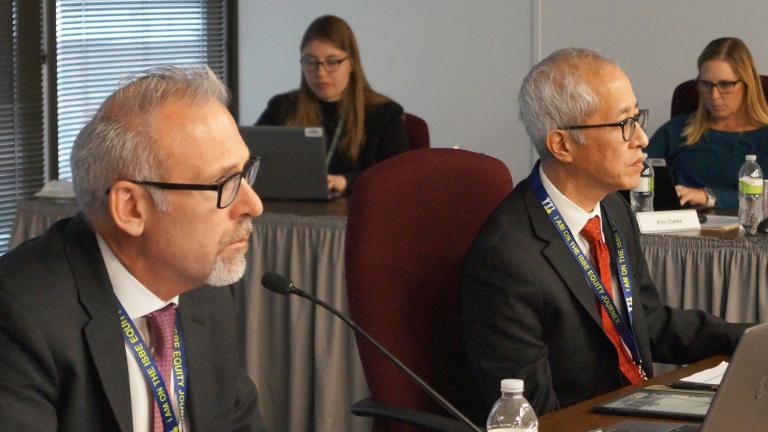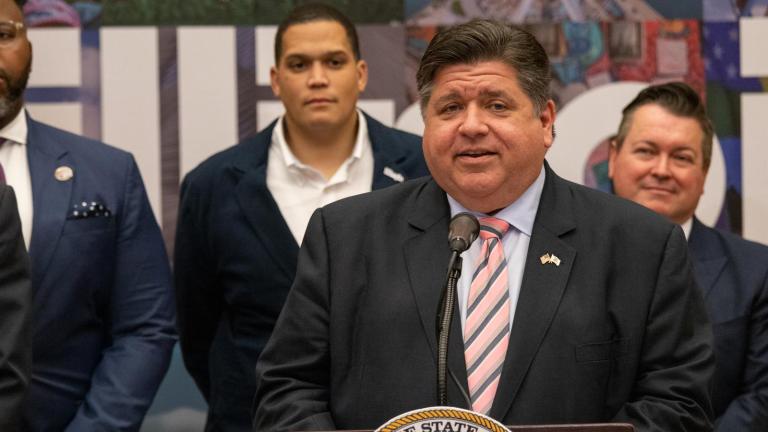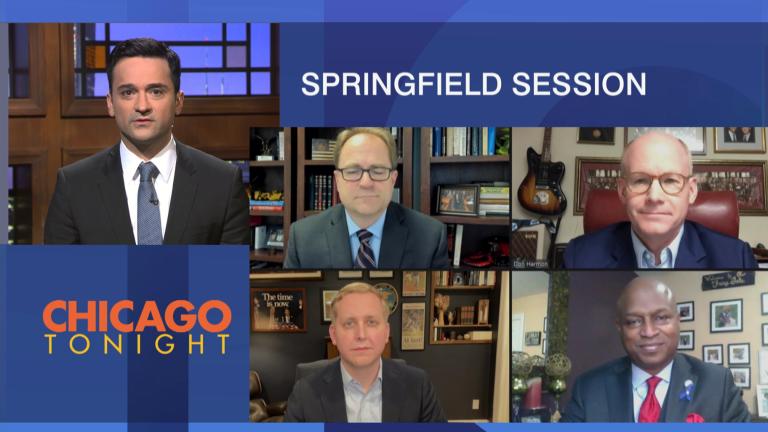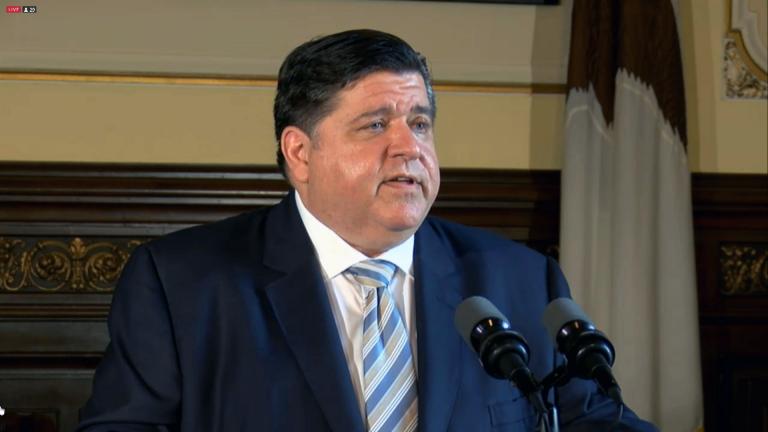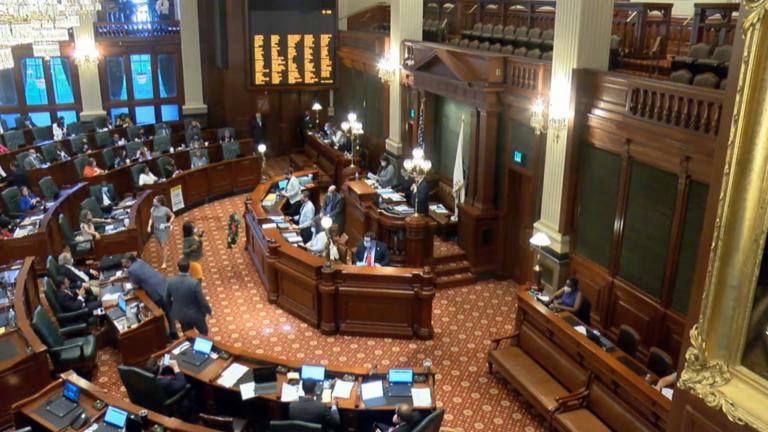Portions of the so-called “grand bargain” may have passed the Illinois Senate on Wednesday afternoon, but they did so without any Republican support – raising questions as to whether the prodigious package that Senate President John Cullerton and Minority Leader Christine Radogno have paraded as a bipartisan path to ending Illinois’ notorious impasse is on the skids.
Twelve linked bills, ranging from an income tax hike to casino expansion, make up the “grand bargain,” and Democrats on Wednesday began by calling several of the least controversial for votes.
Three passed: a local government consolidation plan, easing government purchasing rules and a low-cost municipal borrowing measure.
A fourth – a concept promoted by Cullerton and Republican Gov. Bruce Rauner intended to reduce Illinois’ pension costs by reducing public sector workers’ retirement benefits – failed.
None of the measures received a single vote of support from Republicans, who instead voted “no” or “present.”
That’s not to be seen as a lack of support, Radogno said. Rather, she says GOP senators want to wait until the entire package is finalized rather than voting piecemeal.
“That request was not honored,” Radogno said, and that was “reflected in the votes.”
At least two components of the plan remain under negotiation: how to reduce businesses’ workers’ compensation costs and a new formula for funding Illinois schools.
But Democrats point out that Radogno herself had initially promised a “grand bargain” vote by early February, and say that according to the GOP’s own figures, the lack of budget is costing Illinois $11 million a day.
“We can’t wait any longer,” Cullerton said. “We had to start calling these bills.”
Further, Cullerton says, expedience is necessary because the plan raises $6.5 billion in new revenue – in part by raising the state income tax to 4.99 percent, retroactive to the start of the year. Get too far into 2017 without making the new rate law? Making the change, and counting on the revenue from it, will no longer be possible.
“The story is that her caucus is not ready to vote. Not our caucus,” Cullerton said. “It’s one thing to have a press conference. It’s another thing to actually vote, right? So we’re voting.”
Cullerton says exercise helped him to gauge levels of support and whether the package has a chance of advancing; for example, although the pension measure failed, 18 of 37 Democrats voted for it, even in the face of heavy lobbying from their labor allies. If, as is expected, Radogno can get a dozen the chamber’s 22 Republicans on board, the pension measure could pass.
“Obviously they needed our help on that one. We’re prepared to deliver significant pension reform,” Radogno said.
That scenario is contingent on a bipartisan leap of faith, which may be in jeopardy due to Republicans’ refusal to back the initial few bills Wednesday.
“I think that’s the big fear,” Sen. Toi Hutchinson, D-Olympia Fields, said. “At this point, I’m not listening to what people say. I’m watching what people do.”
Hutchinson says Democrats will have to be convinced that Republicans will be there to support the harder bills given their reluctance to stand with her party on the easier ones.
“I don’t know why anybody thinks that this is going to get any easier,” she said.
Republicans’ reluctance may stem from their awaiting a signal from Rauner, who has used his personal wealth to largely fund the Illinois Republican Party, which in turn funds many senators’ campaigns. Rauner has continually voiced his appreciation to Cullerton and Radogno for their work, but he has been unwilling to take a public stance on what they’ve crafted. Some of the governor’s staunch allies, including the Illinois Chamber of Commerce and the Illinois Policy Institute, are actively campaigning against the plan.
“I think the pressure should be on the Republicans from the business community to realize that they finally have to do something quickly. That’s what I’m hoping will happen,” Cullerton said, as he held up a report released this week by Standard & Poor’s that said the Senate plan could help to alleviate pressure on Illinois’ deteriorating fiscal condition.
Shortly thereafter, Cullerton reportedly crossed the Senate floor to talk with Radogno.
“I think there is a little political theater and drama here. As far as I’m concerned we have a good relationship. We’re continuing to talk about these bills,” Radogno said. “So a little drama, but not the end of the world.”
Separately, the House on Thursday is expected to take up legislation to fund state employees, following court action by Illinois Attorney General Lisa Madigan to withhold their pay absent a budget.
Follow Amanda Vinicky on Twitter: @AmandaVinicky
Related stories:
 Latest ‘Grand Bargain’ Proposes Lower Sales Tax
Latest ‘Grand Bargain’ Proposes Lower Sales Tax
Feb. 7: After hours discussing the grand bargain budget behind closed doors, the state Senate goes home without voting. A look at how the deal is changing.
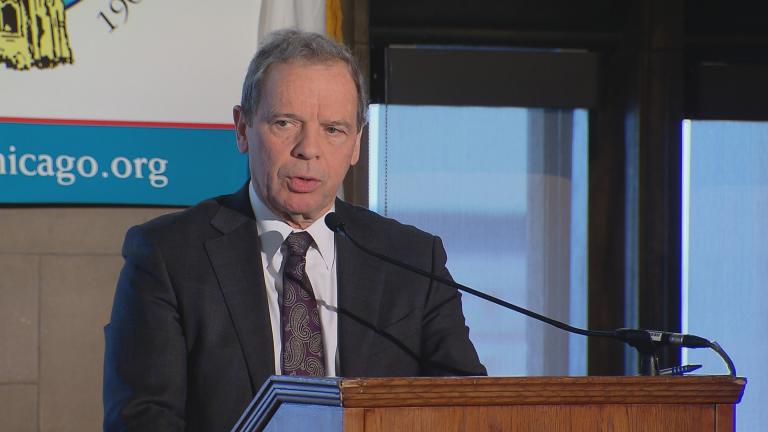 A Big Bet on a ‘Grand Bargain’
A Big Bet on a ‘Grand Bargain’
Feb. 6: Senate leaders’ bipartisan salve to Illinois’ budget troubles is on tap for a vote in Springfield this week.
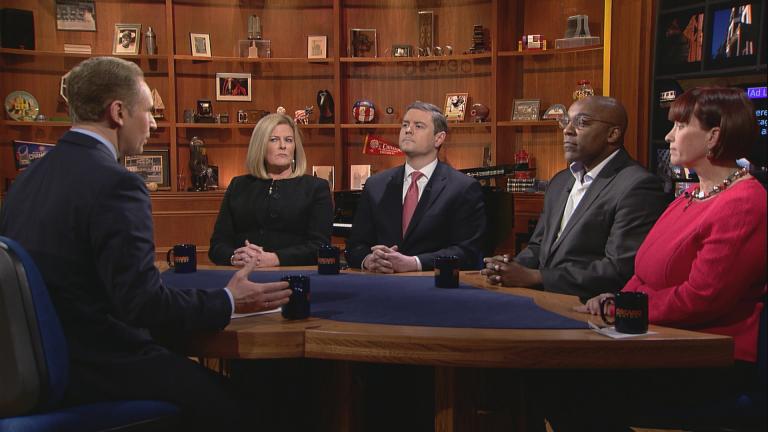 Senate Negotiations on ‘Grand Bargain’ Budget Continue
Senate Negotiations on ‘Grand Bargain’ Budget Continue
Feb. 1: What progress have state senators made on negotiating a budget deal, and how will Gov. Bruce Rauner and House Speaker Michael Madigan react if it passes?

